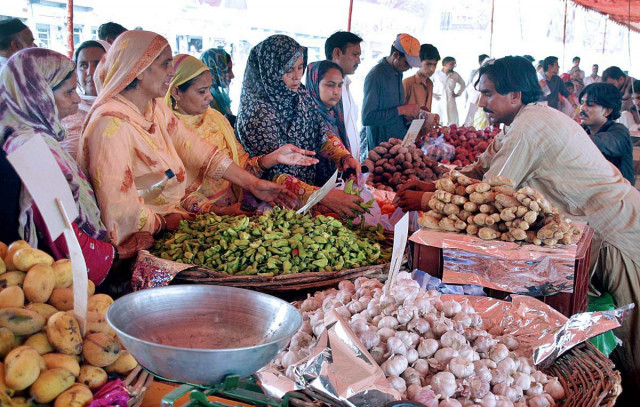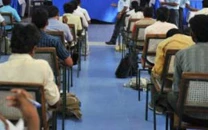Food prices soar past official rates in Punjab
Consumers find government price lists ineffective

Residents of Lahore continue to struggle with profiteering in essential food items, with prices in the markets substantially exceeding the rate lists released by the government.
Consumers across the city complain that shopkeepers appear free to charge whatever they wish during a period of already high inflation.
The Punjab Enforcement and Regulatory Authority (PERA), which was launched with the aim of modernising oversight and introducing stricter checks, has yet to prove effective.
For buyers navigating markets this week, the contrast between controlled rates and actual retail prices was clear.
Poultry remained one of the most glaring examples. The official price of live chicken was fixed between Rs314 and Rs328 per kilogramme, while chicken meat was set at Rs475. Yet customers reported that chicken meat was being sold between Rs510 and Rs620 per kilogramme, with boneless cuts retailing at as high as Rs900.
A shopper at the Township market expressed his frustration, saying, "Every time I see the official rate list posted on the wall, it feels like a joke. The shopkeepers laugh when you point at it. We have no choice but to pay what they demand because we cannot stop eating."
Vegetables showed similar gaps. Potatoes, fixed at Rs70 to Rs75 per kilogramme for A-grade produce, were consistently sold for Rs120, while mixed lower grades went for Rs80 to Rs100. Onions, officially listed at Rs75 to Rs80, reached Rs120 at retail. Tomatoes, which the government fixed at Rs136 to Rs150, were sold for Rs250 to Rs300, double the notified rate. Garlic and ginger were no exception. Local garlic, set at Rs200 to Rs210, was sold at Rs300, while Chinese and Thai ginger, officially priced between Rs430 and Rs500, reached as high as Rs800 per kilogramme. Other vegetables including cucumbers, brinjal, spinach, zucchini, and ladyfinger also commanded profiteering of 30 to 70 per cent above official prices, adding further strain on household budgets.
Fruit prices underscored the same problem. Apples, fixed between Rs140 and Rs325 depending on variety, sold in markets for Rs200 to Rs500. Bananas, capped at Rs200 per dozen, cost Rs250, while guavas, officially unchanged at Rs205 to Rs215, retailed for as much as Rs400. Dates, fixed at Rs470 to Rs510, were sold between Rs800 and Rs2,000 per kilogramme depending on variety and quality. Grapes, peaches, papayas, and persimmons similarly exceeded official price ceilings, with wide discrepancies across neighbourhoods.
Shoppers say that when authorities visit markets, their inspections are symbolic at best, and vendors resume overcharging once inspectors leave.
"The officials come with notebooks and cameras, but the next hour everything is the same," said a resident of Shadman who was buying vegetables for her family. "We are told every week that monitoring will improve, but it never happens. Ordinary families like mine are left with no protection."
City administrators continue to pledge tighter controls, insisting that market committees and magistrates are stepping up oversight. But with the price gaps persisting across nearly every perishable commodity, families in Lahore say the burden of inflated bills grows heavier each week.






















COMMENTS
Comments are moderated and generally will be posted if they are on-topic and not abusive.
For more information, please see our Comments FAQ